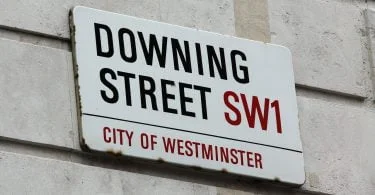The debate over the future of Royal Mail and that of the post office in the UK has been one that has seen many sides come and exchange views.
The debate over the future of Royal Mail and that of the post office in the UK has been one that has seen many sides come and exchange views. As the government considers a bid for privatisation, one of the issues at the heart of the debate is that of the issue of rural post offices, and the effect of privatisation on rural life itself.
Unions and organisations sympathetic towards the cause of Royal Mail and its role have been defending its purpose in rural Britain. In a report from the Observer, the Communication Workers Union is said to be partnering with unions in trying to block the sale, in addition to reaching out to Conservative MPs whose constituencies are in rural communities.
Sarah Lee, the head of policy for the Countryside Alliance, said the government had been in favour of having a lot of businesses being run by the private sector, and that it would be better in that particular sector due to the rise of competition.
Yet, Lee adds, the focus and the view of the Alliance is not on the issue of whether privatisation should be done or not, but rather on the service to these communities. “It is more than a place to buy a stamp,” Lee said. “It is part of that community. [The post offices] are usually the only people and places that some aging people see on daily basis. That interaction has no financial value.”
Lee wants to see that universal service is maintained for all, that costs are the same from whether you’re sending a letter to a different part of London, to sending something to a different part of the UK. “We want to ensure universal service is maintained for all,” Lee said. “That’s what we’ve said to the government and the unions.”
The view of the importance of post offices in the UK is echoed by many campaigners for the countryside. A spokesperson for the Campaign to Protect Rural England said services were vital. “Quite apart from the iconic value of our world-famous and much-loved red post boxes, they provide a vital and necessary service on which many people and businesses depend,” the spokesperson said. “There is of course natural concern that deliveries to rural homes will just not be seen as profitable. This needs to be treated as an essential service if privatisation is to be at all feasible.”
The spokesperson added that such a service is possible with the proper infrastructure and indeed the promise of universal service.
Requests to the Campaign for the Protection of Rural Wales and the Association for the Protection of Rural Scotland seeking comment were not returned.
A spokesperson for Royal Mail said that the service to rural communities would not change, regardless if the business is sold, and that the service commitment had been echoed by Ofcom and the government.
A spokesperson for the Department for Business, Innovation and Skills, the government department overseeing Royal Mail, said it would still be a designated universal service provider. “Regardless of ownership, Royal Mail will still be the UK’s designated universal service provider and will continue to provide deliveries to all UK addresses, rural and urban, on a 6 days a week basis,” the spokesperson said. “The universal postal service is protected in statute, the Postal Services Act 2011, and Royal Mail will remain regulated by Ofcom and will have to comply with quality of service targets set by the regulator.”
Lee says at the end it is down to the commitment given in Parliament, which may not be given before 2015. Yet, Lee adds, there is a value when it comes to rural post offices, saying that there is an importance to the relationship between urban areas and the countryside and the practices and traditions of both settings. “As we become increasingly urbanised the link between land management, the rural way of life is forgotten, which can lead to misunderstanding of certain traditions and practices,” Lee said. “The government deals with balance books and bases any deal on the business worth. It is very difficult to monetize the social value of Post Offices in the countryside.”
What do you think? How vital are post offices to rural communities? Have your say in the comments section below, on Facebook or on Twitter.
Editor’s note: This article was amended on Monday, 17th June to reflect this correction. The original version of this article had the Countryside Alliance partnering with the Communication Workers Union. That was incorrect. Kettle apologises for the error.








